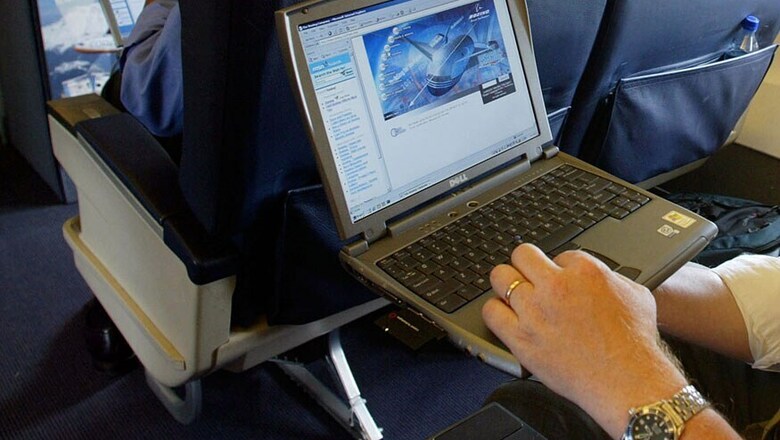
views
Paris A carry-on ban by Washington and London for laptops on flights from some airports will hit the profits of affected airlines, especially the lucrative business class segments of Gulf carriers, analysts said on Friday.
Washington decided to ban electronic devices bigger than mobile phones on direct flights to the United States from 10 airports in seven Middle Eastern countries and Turkey. Britain followed with a similar ban from five countries from the Middle East, northern Africa and Turkey.
"It's unusual to a have a security measure that is geographically selective," said Bertrand Mouly-Aigrot, an associate at Archery Strategy Consulting, which specialises in the security and transportation sectors.
"One of the probable knock-on effects is that certain travellers will turn to other companies" for their trips to the United States but "if the threat is there, it could be shifted to connecting flights," he told AFP.
In addition to the risk of losing passengers and suffering a nosedive in client satisfaction, the impacted airlines will also have to bear the costs of checking in and screening more luggage, said experts.
Banning laptops and other electronic devices in cabins should in theory reduce the risk of their being used to hide a bomb, as scanners for checked luggage are usually more sophisticated.
The US ban affects around 50 flights per day from nine airlines: Royal Jordanian, EgyptAir, Turkish Airlines, Saudia, Kuwait Airways, Royal Air Maroc, Qatar Airways, Emirates and Etihad Airways.
The British ban affects 14 airlines: British Airways, EasyJet, Jet2.com, Monarch, Thomas Cook, Thomson, Turkish Airlines, Pegasus Airways, Atlas-Global Airlines, Middle East Airlines, Egyptair, Royal Jordanian, Tunis Air and Saudia.
Flights to the United States from Gulf countries carry many business people who often travel with just carry-ons, and use their time onboard to get work done.
And "filling business class is what makes long-haul flights profitable," said Mouly-Aigrot.
The additional time spent waiting to receive checked baggage upon arrival and the frustration of not being able to get work done during the flight in a Wi-Fi enabled cabin risks angering airlines' most valued customers.
"Flying with a laptop onboard is considered the norm today. There is a risk of a considerable loss of passengers," said Didier Brechemier, a transport expert at the Roland-Berger consultancy.
Ben Vogel at IHS Jane's Airport Review said that airlines would also likely face increased claims for laptops and other electronic devices getting damaged in checked luggage, while the extra time passengers need to pass in enhanced security means they have less time to spend shopping in airports.




















Comments
0 comment